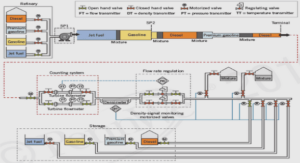JEALOUSY, BETRAYAL AND DEATH IN WILLIAM
SHAKESPEARE’S OTHELLO
THE ANALYSIS OF JEALOUSY
This chapter aims to present a statement of the question of jealousy. There are many interpretations of the concept but we’ll try first to explore the term following the Shakespearean, the psychological and cultural point of view. The second part will present the manifestation of jealousy particularly on the heroes. A- SHAKESPEAREAN ANALYSIS, A PSYCHOLOGICAL AND CULTURAL ANALYSIS OF JEALOUSY. In the Middle Ages and even in Elizabethan times, there was a strong belief that every substance of the universe was formed by the four elements: Fire, Air, Water, and Earth. Each element was connected to a mood of man. The Hearth was connected to melancholy, water to phlegm, Air to blood and Fire to anger. All these elements had to be in harmony in order to have a physiological and psychological balance. Any imbalance could be fatal for the health and even could explain some mood swings such as anger caused by jealousy. The explanation given to the mood by Elizabethan thought was the opposite of the one given by Shakespeare and Freudian thought. Shakespeare, during his time, was influenced by the humanist movement. Humanism was a movement of thought which highlighted all the creative power of man. According to this movement it was not the concept of order which determined our destiny and our moods but it focused on the exercise of free will, freedom and man’s responsibility. Born from the renaissance, the humanist thought gave man freedom of thought and action. Man was worthy, able to take charge of his own destiny, unlike the passive thinking which placed him in a circle already drawn by God or the stars. Shakespeare’s conception thus, resembled to the one of Erasmus which affirmed that we are not born man but we become man by our actions. Thus, the concept of humanism developed by these thinkers aimed the release of man as some existentialists of the 20th-century philosophical movement did, by stressing the responsibility of Man for life. This concept of human dignity and human freedom is well underlined by Shakespeare in Julius Caesar when Brutus tells Cassius: « The fault, dear Brutus, is not in our stars, / But in ourselves, that ‘we are underlings. »12By opposing the ancient conception and problem and solving equation between determinism and freedom, Shakespeare gives value to the 12 Julius Caesar . I, ii, 140-141 8 characters of the drama of life that we are. He underlines the human passions such as jealousy, envy and exposing human evil to the public on the Elizabethan stage to heal them. If Monism maintains the unity between the universe, the cosmos and the world, in other words a link between our moods and the cosmos that would force Man to act, Shakespeare for him emphasizes on human action in his plays. In Parallel, psychological explanation deprives passion to any universal determinism by linking the past to the passion of the patient. But before discussing the explanations let’s clarify the ambiguity between Jealousy and Envy. Man is a social being. He cannot live outside society. This is what justifies his life in the social circle whose smallest division is the family. Social life ensures a harmonious and good psychic development and security he needs. This is precisely what explains his life as a couple and family. In the family, the father or mother must play their role to ensure the balance of the household. To ensure the benefits of married life, complementarities, selfconfidence, self-love and the strength to take responsibility for parent …, each person must satisfy the other. One of the partners has to do his best to fill the gaps of the other and to be loved in return. If roles are poorly played, the couple can go through the most common conflict caused by jealousy. This jealousy occurs when the partner is jealous, when a third person, a rival has the advantages which he feels the sole beneficiary. In the context of romantic relationships, Freud presents jealousy in three forms: we have the normal or competitive jealousy, the projected jealousy and the delusional jealousy.
THE GREEN-EYED MONSTER AND ITS MANIFESTATION
The theme of jealousy is well represented by Shakespeare through his two plays Othello and Julius Caesar. Being ones of the most famous of English literature, they highlight the theme of jealousy and show how this feeling arises from the individual, slowly and slowly and surely leads to destruction. Taking inspiration by history, they all depict famous people. Othello is presented as a noble Moor, a general in the army of the department of state of Venice. Caesar is a 44 BC Roman statesman. As for Brutus (Marcus Junius), he is a Roman politician who eventually kills him when he is defeated by Antony and Octavian at Philippi. Cassius participates in the conspiracy that leads to the death of Caesar. Julius Caesar portrays how the roman dictator Julius Caesar is killed by conspiracy in 44 B.C at the battle of Philippi. Rome is a great empire in this period but it is subject of a lack of peace between citizens who are in search with democratic power. When Julius Caesar becomes ruler of Rome, citizens fear he would be a dictator and finally assassinate him. In the play this assassination is explained by jealousy. Jealousy is a very important theme in this play and characterizes characters. Both pieces depict the theme of jealousy. The form of jealousy that the two plays share is the one that looks like jealousy at workplaces where a person is jealous of another person because of his success. In Othello, Iago is jealous of Cassio because of his promotion and Cassius in Julius Caesar is also jealous of Caesar because of his success. Similarities can be noted with characters. Comparing these two plays, we can see that Iago and Cassius are the two characters who make up in arms about their target to achieve their goal. Regarding Iago and Cassio, they are officers under the command of General Othello. Cassio is appointed to the rank of lieutenant after having arranged the marriage between Othello and Desdemona. Iago is not happy with this promotion because he considers himself more worthy and more aged than Cassio. Very canny, he decides to take revenge by 21 awakening the jealousy of Othello. But the manner of doing it makes him one of the most evil characters of Shakespeare. He is the central character who guides the course of events which will be closely related to his action. Perfect connoisseur of human nature, he manages to sow in Othello’s mind the seed of jealousy that will eventually destroy Othello, Desdemona and also Cassio. As for Cassius in Julius Caesar, he is jealous of the power and reputation of Caesar. Like Iago, he hates the success of Caesar as Caesar will become a renowned, respected and revered king by all men like a divine. He is also not happy with his military success. Very critical of Caesar, he is categorically opposed to the project which is to become the new leader of the country. To counter this, he manages to convince Brutus into believing that Caesar should be assassinated for the interest of Rome because he is a dictator. Like Iago, he will devise a secret plan for the removal of Caesar. Regarding the differences, the first difference that can be noted through the study of the plays is the difference between publication dates. Othello is published in 1622 and Julius Caesar in 1623. With only a slight difference of a year we can explain why these pieces share the same theme. Only if Othello develops the theme of jealousy in love, Julius Caesar focuses on the theme of political jealousy. . The jealousy experienced by Othello is an obsessional one. Othello is blinded by the passion resembling neurosis. It is a passion that affects his soul, and throws his behavior and anxiety into disorder. When Iago manages to convince him of his wife’s infidelity, he invents a lot of evidence which luckily seem to stick to reality, but they are wrong. All this evidence will only fuel gradually jealousy of Othello. Iago is used to achieving his goal through his language trying to be the most confusing possible to sow doubt in the mind of Othello. When he sees Cassio leaving Desdemona in, he exclaims: « Ha! I like not that” 33. When Othello asks what? He answers “nothing my Lord!” The confused language and terse expression also join superficial to general. Referring to Desdemona he says: “in Venis They do let God see the pranks They dare not show Their husbands » 34. But when Iago tells him that Desdemona can go wrong because « she did deceive her father, marrying you » 35 , Othello’s love begins to be 33 Shakespeare: Othello: III, iii, Page 2 34 Ibid, III, iii, , Page 9 35 Ibid, III, iii, Page 10 22 tainted when Iago tells him that he has seen them whispering, laughing and flirting each other. This is the beginning of suspicions. Torn between uncertainty and doubt, Othello will require more evidence to feel reassured: « Give me a living reason she is disloyal. »36 Iago tells him that Cassio is sleeping while he hears him pronounce the name of his wife Desdemona: « Desdemona, be careful! Hide our love » 37, “Cursed fate that gave thee to the Moore » 38 . All these proofs invented by Iago mean nothing because they do not justify the infidelity of Desdemona. False and misleading, they will push Othello in his blindness. In a lucid state, being more objective, he could discover for the truth of the facts, but unfortunately he was unable to do that because he was devoured by rage, digested by the passion of jealousy. As soon as he begins to doubt the loyalty of Desdemona, Iago imagines the history of when Iago asks his wife to steal the handkerchief Othello gives Desdemona as a gift; he manages to put it in Cassio’s room to create more doubt in Othello’s mind. But it is when he makes him believe that Cassio has slept with Desdemona that Othello’s jealousy rises to its peak. Like a poison, jealousy begins as he believes that this handkerchief is a gift of Desdemona to Cassio. It is at this time that he begins to self-destruct. Bad thoughts cross her mind. He becomes disrupted. Wanting evidence, he requires the bringing of Desdemona’s handkerchief with his anger in a mad rage. The whole problem with Othello is that Desdemona loves the Moor too much. Jealousy is the morbid jealousy described by Freud in his studies of psychoanalysis. In the plays, Shakespeare shows us how circumstantial evidence can release jealousy and affect our life. While reading Othello, jealousy manifests itself through two main characters: Othello and Iago. Othello, the central character is a general of army in Venice. His wife Desdemona is his love and daughter of a Venetian statesman Brabantio. Iago and Michel Cassio are career military men. The former is his villain and the later his servant. From the beginning of the play we assist on the hostility between Iago and Othello. Iago is jealous because Cassio has been appointed lieutenant but not him. As lieutenant position is more advantageous and he considers himself more skilled, he becomes furious and plots to revenge against Desdemona and Michel Cassio. At first he tries to make Othello demote Cassio. This first passion between Iago and Cassio is justified by a professional competition
Introduction |






